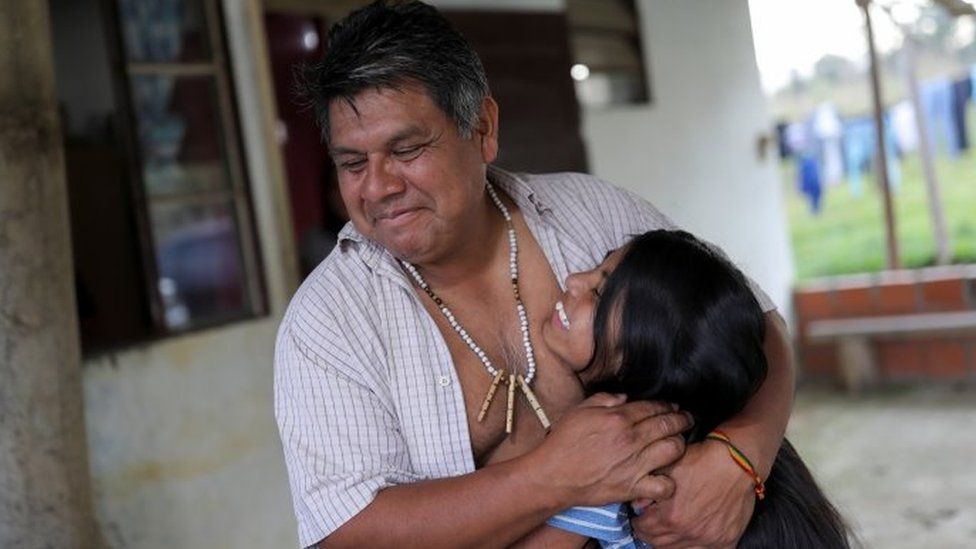-

-
-
Loading

Loading

The Supreme Court of Brazil has rejected attempts to limit the rights of indigenous communities to their ancestral lands. In a ruling that sets a precedent for hundreds of land claims, the court favored the Xokleng people, who had been forcibly expelled from their territory. This decision is expected to have far-reaching implications for indigenous land rights in the country. Members of various indigenous groups celebrated with tears of joy upon hearing the news. The Xokleng, a group of around 2,300 individuals residing in the highlands of Santa Catarina state, were victims of a violent land clearance during the late 19th and early 20th centuries. Anthropologists have documented the brutality of this expulsion, with mercenaries collecting the ears of those killed to claim their rewards. Currently, the Xokleng share the Ibirama La-Klãnõ lands with two other indigenous groups. Although officially granted these rights in 1996, they argue that their ancestral lands were much larger before being forcibly taken from them. This dispute has pitted them against tobacco growers and farmers who believe they should not be evicted from the land they have cultivated for decades. The ongoing legal battle dates back to 2009 when the Xokleng were evicted by Santa Catarina's Environmental Institute. Utilizing a legal argument known as "marco temporal," authorities claimed that indigenous groups must prove they inhabited the land when the Brazilian constitution was signed in 1988 for their claims to be valid. The Supreme Court initially ruled against the Xokleng, but their supporters argued that this decision disregarded the fact that they had been forcibly expelled by German settlers in the past. The Xokleng appealed to the Supreme Court, which declared in 2019 that their case would set a precedent for similar disputes. With the court's rejection of the "marco temporal," all land disputes reliant on this argument could now be challenged in court. This outcome is considered a victory for indigenous rights, which have faced challenges during President Jair Bolsonaro's tenure. Bolsonaro contended that indigenous rights had been excessively extended in Brazil and advocated for the utilization of indigenous lands for resource extraction and agriculture. Although Bolsonaro was defeated in the recent presidential election, his party retains influence in Congress, where it has thwarted proposed legislation from President Luiz Inácio Lula da Silva's administration. Earlier this year, Congress curtailed the powers of the Ministry of Environment and the newly established Ministry of Indigenous Affairs.